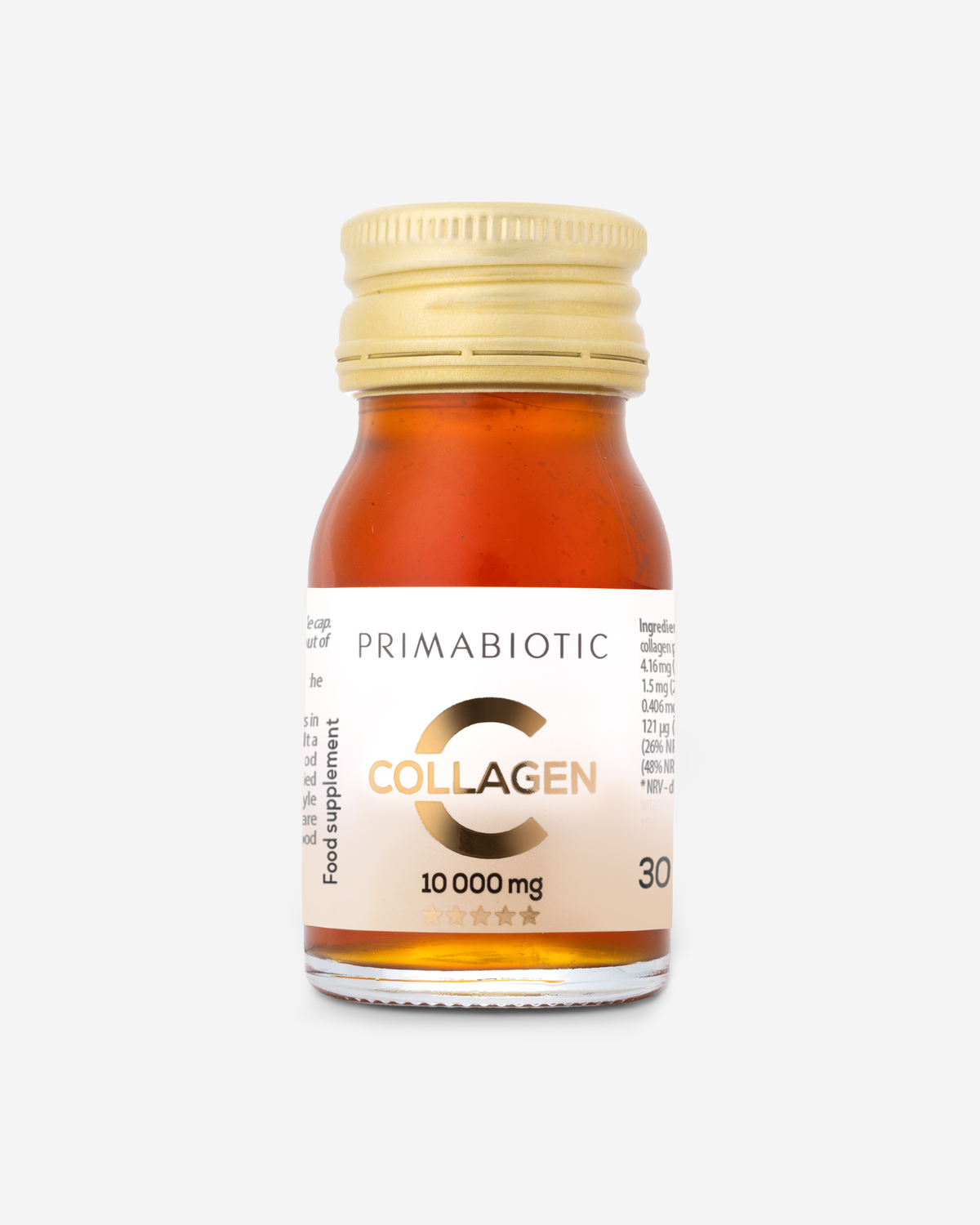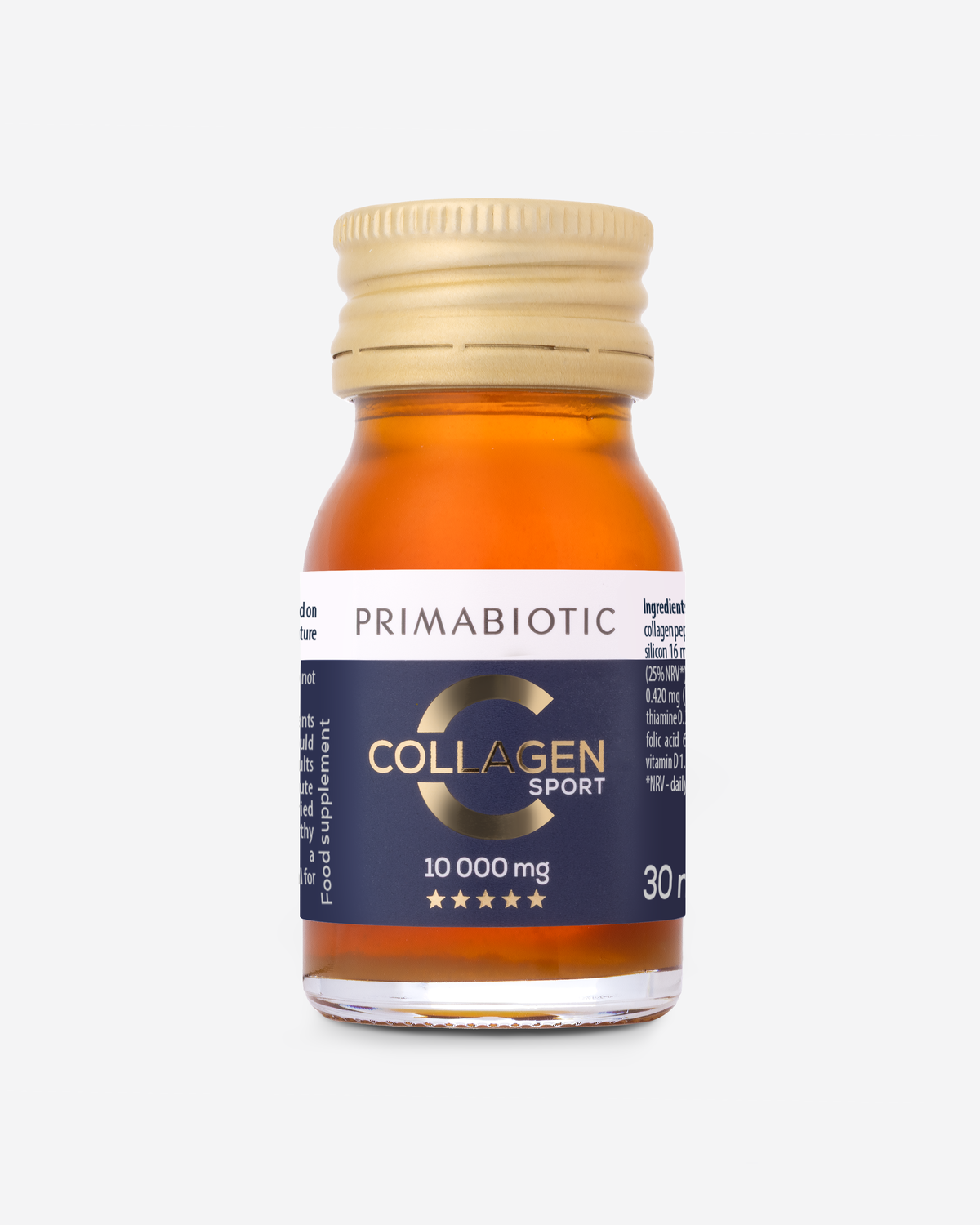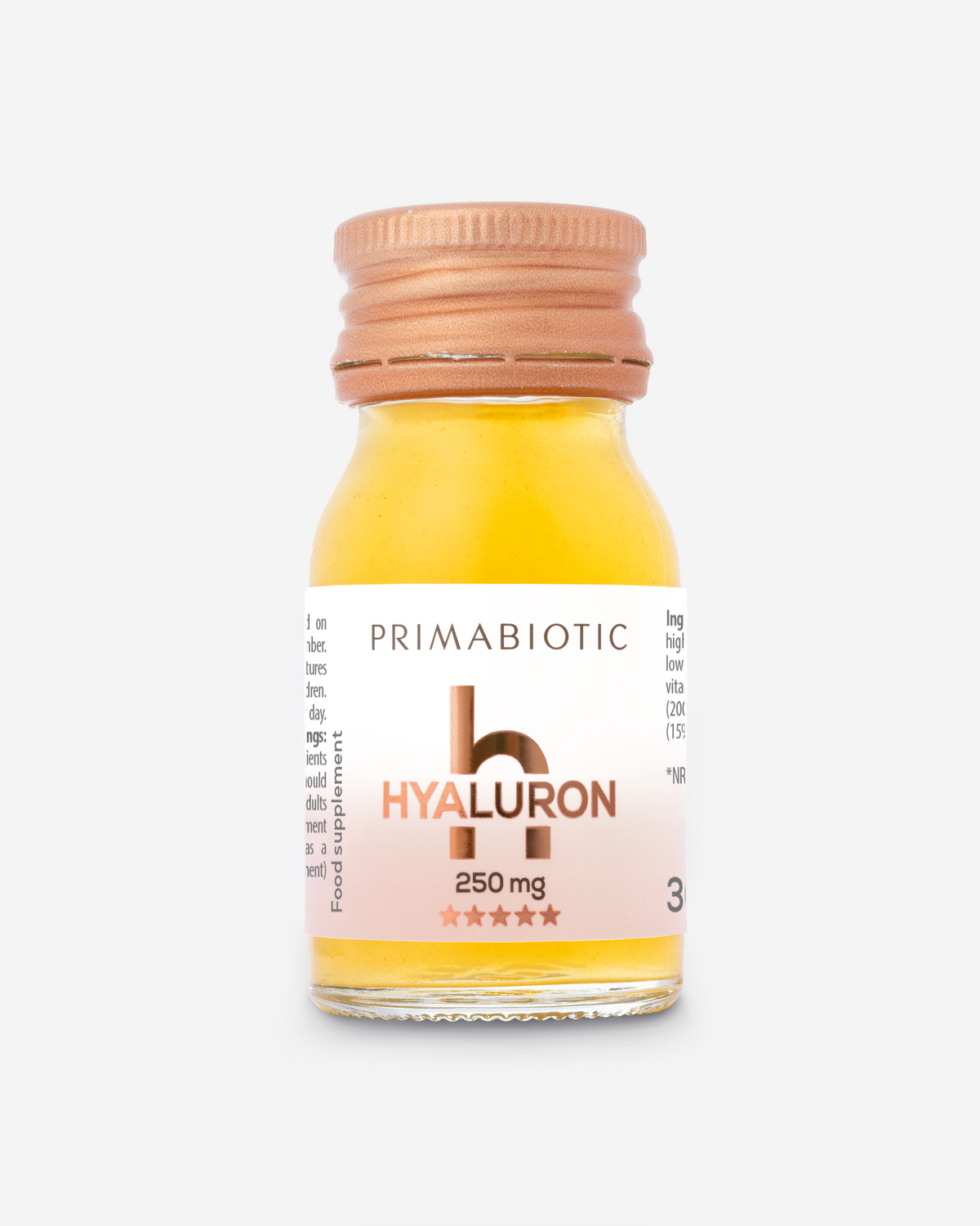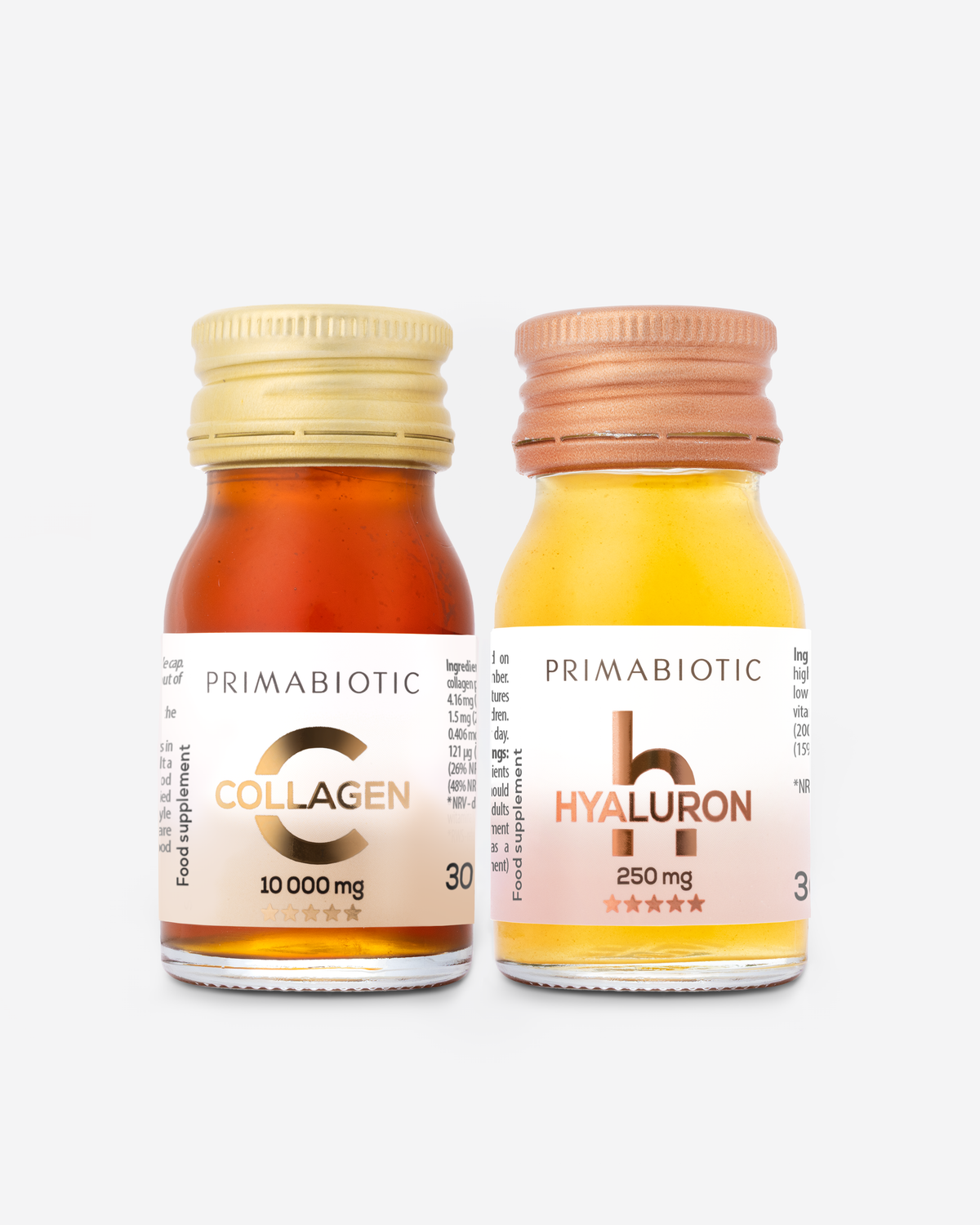Collagen has become one of the most popular supplements for supporting beauty and health. We see it on pharmacy shelves, in drugstores, and social media - it promises firm skin, strong nails, shiny hair, and functional joints. But does it work? Is drinking collagen healthy and does it make sense? In this article, we'll take a look at the facts, research, and practicalities of collagen supplementation - from choosing the right product to the timing of use, to the real benefits to the body.
Is collagen good for you?
Collagen is one of the most important structural proteins in our body. It is responsible for the elasticity of the skin, healthy joints, strong hair and nails, and the condition of connective tissue. Unfortunately, as we age, its natural production declines. This is when many people begin to wonder if drinking collagen makes sense and if it can help.
Studies show that collagen supplementation can realistically support skin health, reduce wrinkles, and improve elasticity. Hydrolyzed beef collagen is particularly effective, containing types I and III, which are key to skin and connective tissue structure. So it's worth considering drinking collagen, especially after age 25, when collagen synthesis begins to decline.
In addition, collagen supplementation also supports hair and nail health. Amino acids such as glycine and proline strengthen their structure and promote growth. So if you're wondering whether drinking collagen is healthy - yes, especially if you want beautiful skin, strong hair, and functional joints.
Collagen supplements – do they work?
More and more people are turning to collagen supplements - but does collagen supplementation make sense? The answer is a definite yes! Both research and the experience of supplements indicate that collagen supplementation benefits many aspects of health.
First - skin. Regularly drinking collagen improves its hydration, and firmness and reduces fine lines. Second - joints. Collagen peptides can reduce pain and promote cartilage regeneration, which is of great importance in active people and seniors. Third - the digestive system. Collagen supports the regeneration of the intestinal mucosa, which can be important in cases of leaky gut syndrome.
So if you're still wondering whether collagen supplementation makes sense, remember that its effects extend far beyond appearance.
How long does collagen take to work?
Many people ask themselves: "How long should I use collagen to notice results?" It depends on the goal of the supplementation.
For the skin, the first results, such as improved hydration and elasticity, may appear after 4-12 weeks. Those using collagen for joints experience relief after 12-24 weeks, and improvements in bone mineral density can take up to a year.
As for hair and nails, it is worth continuing collagen supplementation for a minimum of 3 months. Regularly drinking collagen for a long time brings the best results - so it's not worth stopping after a few weeks.
In short - how long to use collagen? A minimum of 3 months, and preferably throughout the year if you want lasting results.
How to choose the right collagen supplement?
Choosing the right product is of great importance to the effectiveness of supplementation. If you don't know how to choose collagen, pay attention to several key factors:
- Collagen type - preferably bovine collagen, containing type I and III.
- Hydrolyzation - hydrolyzed collagen is well absorbed.
- Dosage - effective collagen supplementation requires about 10,000 mg per day.
- Addition of vitamin C - essential for collagen synthesis.
- Pure formulation - no preservatives or unnecessary additives.
If you are wondering how to choose collagen, bet on a proven, well-studied product of high quality. Only then will drinking collagen bring real results.
Also, remember that regularity is key - no matter how long you use collagen, it's important to do it daily.
See also other articles:






